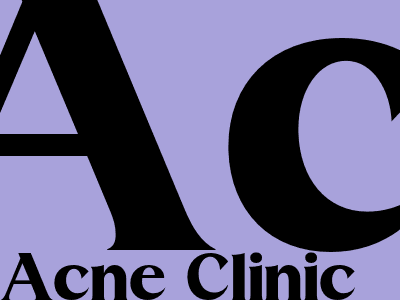
Acne Clinic: The Ultimate Guide to Clear Skin
What is Acne?
Acne is a common skin condition that affects people of all ages. It is caused by a combination of factors, including hormones, bacteria, and oil production. Acne can range from mild to severe, and it can cause a variety of symptoms, including pimples, blackheads, whiteheads, cysts, and scars.
What Causes Acne?
There are a number of factors that can contribute to acne, including:
- Hormones: Androgens, which are hormones that are produced in both men and women, can trigger acne. These hormones can cause the skin to produce more oil, which can clog pores and lead to breakouts.
- Bacteria: The bacteria Propionibacterium acnes (P. acnes) is found on the skin of most people. However, in people with acne, P. acnes can become overactive and cause inflammation and breakouts.
- Oil production: The sebaceous glands in the skin produce oil, which helps to keep the skin moist. However, in people with acne, the sebaceous glands can produce too much oil, which can clog pores and lead to breakouts.
What are the Symptoms of Acne?
Acne can cause a variety of symptoms, including:
- Pimples: Pimples are the most common symptom of acne. They are small, red bumps that can be filled with pus or blood.
- Blackheads: Blackheads are small, dark bumps that are caused by clogged pores. They are often found on the nose, chin, and forehead.
- Whiteheads: Whiteheads are small, white bumps that are caused by clogged pores. They are often found on the nose, chin, and forehead.
- Cysts: Cysts are large, painful bumps that are filled with pus. They can be very deep and can cause scarring.
- Scars: Acne can cause a variety of scars, including ice pick scars, boxcar scars, and rolling scars.
How is Acne Treated?
There are a number of different treatments for acne, including:
- Topical medications: Topical medications are applied directly to the skin. They can help to reduce inflammation, kill bacteria, and unclog pores.
- Oral medications: Oral medications are taken by mouth. They can help to reduce inflammation, kill bacteria, and prevent new breakouts.
- Laser therapy: Laser therapy uses a laser to target and destroy acne-causing bacteria. It can be effective in treating mild to moderate acne.
- Light therapy: Light therapy uses blue or red light to kill acne-causing bacteria. It can be effective in treating mild to moderate acne.
How Can I Prevent Acne?
There are a number of things you can do to help prevent acne, including:
- Wash your face twice a day with a gentle cleanser.
- Avoid using harsh or abrasive scrubs.
- Moisturize your skin regularly.
- Avoid touching your face.
- Eat a healthy diet.
- Get enough sleep.
- Manage stress.
When Should I See a Doctor?
You should see a doctor if your acne is severe or if it does not respond to over-the-counter treatments. Your doctor can help you to determine the best course of treatment for your acne.